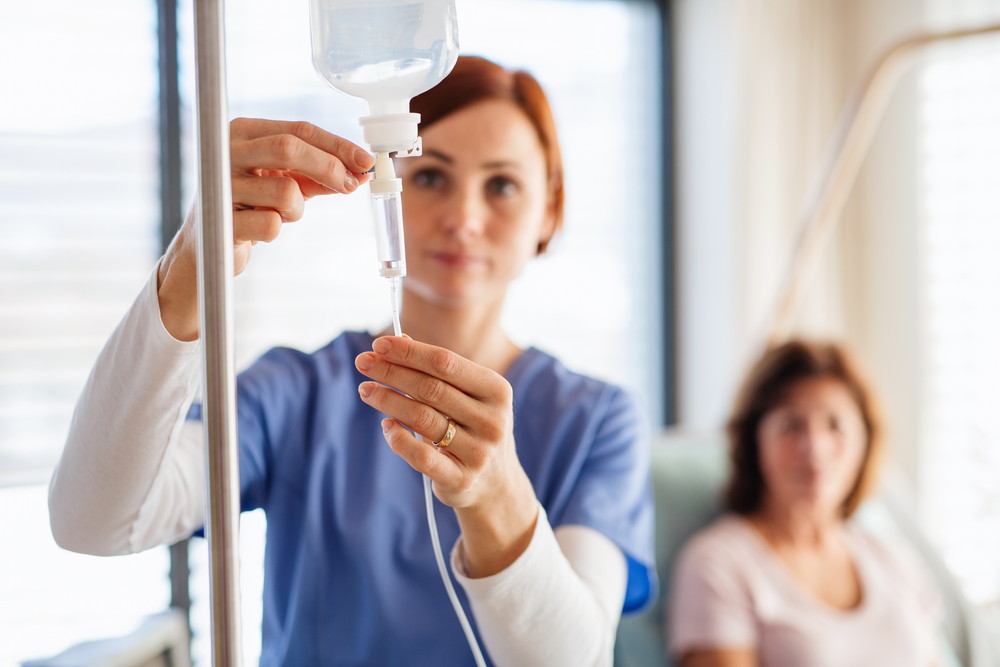Medical Detox: Cost, Timeline, & What to Expect
For those struggling with substance abuse, medical detox is a critical step towards recovery. Depending on how much and how long someone has been using certain substances, medical detox can safely and effectively rid the body of toxins and minimize harmful and uncomfortable symptoms. It’s essential to detox with proper medical supervision due to the potential for severe withdrawal symptoms.

What Is Medical Detox?
Medical detox is a supervised process of withdrawing from substances, such as alcohol or drugs, under the care of medical professionals. It is typically the first step in addiction treatment. When you have been using certain substances for a significant amount of time, it can be dangerous to stop suddenly without properly detoxing.
Medical detox aims to manage withdrawal symptoms safely while addressing any medical complications that may arise. Substances that tend to cause the most withdrawal symptoms include:
- Alcohol
- Prescription opioids
- Heroin
- Benzodiazepines
Alcohol Detox Explained
Alcohol dependence can develop in individuals who drink excessively. If you develop a dependence and stop alcohol suddenly, withdrawal can be serious and potentially life-threatening.¹ Some common withdrawal symptoms include:²
- Headache
- Nausea
- Vomiting
- Anxiety
- Insomnia
- Hallucination
- Tremors
- Confusion
- High blood pressure
The onset of withdrawal typically occurs within 24 to 48 hours after the decrease in blood alcohol level and can continue for five to seven days.³
Medical detox is the first step in managing alcohol withdrawal symptoms. If you are in acute withdrawal, then an inpatient setting is recommended, especially if you have any co-morbid medical or psychiatric conditions.
You would meet with a doctor or treatment team, who will take a history of you and your substance use. From there, they will decide the safest and most effective route for your medical detox. Benzodiazepines are considered first-line treatment for alcohol withdrawal symptoms during medical detox, though barbiturates can also effectively treat symptoms depending on individual needs and medical and psychiatric history.⁴
Understanding Drug Detox
Like alcohol detox, drug detox takes place in medical facilities, where you would receive around-the-clock care and support from healthcare professionals. The type of drug in your system will affect the type of medication-assisted treatment (MAT) you would receive. Medications used to minimize withdrawal symptoms and side effects would be administered and monitored to keep you more comfortable.
Your choice of medical detox strategy depends on your lifestyle, medical and mental health history, drug use history, and current circumstances. After completing your medical detox, it’s recommended to immediately follow up with psychosocial therapies. Outpatient MAT may be continued with methadone or naltrexone.⁵

What to Expect with Medical Detox
Medical detox may be a requirement before admission to treatment centers. During medical detox, individuals undergo a thorough assessment to determine the appropriate course of treatment. Medical professionals may administer medications to manage withdrawal symptoms, monitor vital signs, provide emotional support, and address any underlying medical issues or co-occurring mental health disorders.
The timeline of detox varies depending on the type of substance used, the severity of addiction, and individual differences. The guidelines for medical detox recommend both pharmacological and psychosocial therapies.⁵ However, medical detox typically does not address the underlying emotional, behavioral, and psychological factors that accompany substance misuse. Therefore, to bring about long-term changes, following up with inpatient or outpatient treatment immediately after medical detox is recommended.
Understanding Medical Detox Costs and Insurance Coverage
You may be concerned that your insurance does not cover detox from drugs/alcohol. Generally, health insurance plans are designed to include coverage for substance use treatment, including medical detox. The cost may fluctuate depending on factors such as the facility, geographic location, length of time for the treatment, and whether additional services or accommodations are required. Nevertheless, the extent of coverage can differ based on the benefits specified in your individual plan.
You should contact your insurance company to verify your plan’s coverage for medical detox. If your insurance does not cover all or part of the cost of medical detox from drugs/alcohol, you can contact treatment facilities and explore potential payment options or financial assistance. Certain state facilities may offer medical detox treatment for free. However, due to demand, you may have to wait longer to be admitted and not receive as extensive services as privately owned treatment centers.
If you pay out of pocket for medical detox treatment, you can expect to pay on average anywhere from $250 to $800 per day, with an average stay of about seven days.⁶ Investing in professional medical detox as the first step in your sobriety can greatly increase your chances of recovering safely and successfully from substance misuse.
Can You Detox at Home?
Home detox refers to the process of attempting to withdraw from substances such as drugs or alcohol without medical supervision, typically within your own home. It may involve various methods, such as:
- Tapering gradually off
- Abruptly stopping use
- Using over-the-counter remedies (e.g., herbs, supplements, or vitamins)
- Following self-help programs
However, home detox can be dangerous without the supervision and support of medical professionals, which can put you at risk, especially for substances with severe withdrawal symptoms. There are times when at-home detox is discouraged, which include:
- A lack of support from family and friends
- Inadequate or unsafe housing
- A serious illness
Weighing Your Options: Medically Assisted Detox vs. At-Home Detox
While it may seem like detoxing from the comfort of your own home would be ideal, it lacks the additional support and safeguards that medical detox can provide you. Medically assisted detox can be safer and more controlled, but it can be costly and inconvenient. In contrast, popular or at-home detox methods may not provide the same level of monitoring and medical intervention, which can increase the risk of complications. While some people may attempt to detox at home, it’s essential to recognize that the severity of withdrawal symptoms and the risk of medical complications can vary widely, depending on the type of substance used, the duration of use, and individual health factors.
Additionally, relapse may also be higher for individuals who detox from drugs/alcohol at home. Without the additional support during your early sobriety, you could have an increased risk of relapsing and a higher chance of overdosing due to your body not being able to tolerate the same amount of the substance as before the medical detox.⁸ Therefore, detoxing at home is generally not recommended for substances with significant withdrawal risks.
Find a Medical Detox Center
If you or a loved one are looking to detox from drugs/alcohol or learn more about the process, call 800-908-4823 (Sponsored) to learn about your options. You can also find a treatment center near you.
Resources
- U.S. Department of Health and Human Services. (n.d.). Alcohol use disorder: From risk to diagnosis to recovery. National Institute on Alcohol Abuse and Alcoholism.
- DiLonardo, M. J. (2023, October 08). Alcohol withdrawal: Symptoms, treatment and alcohol detox duration. WebMD.
- U.S. Department of Health and Human Services. (n.d.). Alcohol use disorder: From risk to diagnosis to recovery. National Institute on Alcohol Abuse and Alcoholism.
- Weaver, M. F., Hong J. H., & Gilmore-Thomas, A. (2023). Drugs Used in Withdrawal Management and Post-Withdrawal Management. In Alcohol Use: Assessment, Withdrawal Management, Treatment and Therapy: Ethical Practice (pp. 318-319). Cham: Springer International Publishing.
- Diaper, A. M., Law, F. D., & Melichar, J. K. (2014). Pharmacological strategies for detoxification. British journal of clinical pharmacology, 77(2), 302–314.
- Average cost of drug rehab [2023]: By type, state & more. NCDAS. (2024, March 25). Davis C. (2018). Home detox – supporting patients to overcome alcohol addiction. Australian prescriber, 41(6), 180–182.
More Treatment Options

Vivitrol
Guide to Vivitrol and How It Helps With Alcoholism Overcoming an alcohol addiction can be one of the hardest

Transitional Housing
Transitional Housing: How to Find the Right Recovery Residence Finding aftercare, or additional support and services following completion of a

Suboxone
Suboxone — How It Works and Its Role In Addiction Recovery According to statistics from the Centers for Disease Control